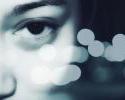Obsessive Compulsive Disorder
Bill had persistent fears about committing a sin.
Shel was tortured by pornographic obsessions.
Jim kept having repeated fears that he might be a homosexual.
Marta couldn't stop imagining herself stabbing her children with a knife.
Although the names have been changed, their stories are true.
These symptoms are not caused by a lack of will power, lack of discipline, or sinfulness on the part of the afflicted person.
The thoughts are not caused by a secret unconscious desire.
These people all suffer from a brain-disorder known as Obsessive-Compulsive Disorder, or OCD. The National Institute of Mental Health estimates that the disorder afflicts about two percent of the population, making it more prevalent than bipolar disorder (manic-depression), panic disorder, anorexia, or schizophrenia. OCD is classified as an anxiety disorder, thought to be mainly genetic, but influenced by environmental factors.
Most Common Obsessions:
- Fears of Contamination (Dirt or Germs)
- Violent or Aggressive Obsessions
- The Need for Symmetry
- Concerns about Illness or the Body
- Sexual Obsessions (such as Fear of Being Gay)
- Fears of Hurting Others Accidentally
Common Compulsions:
- Repeated Washing
- Compulsive Checking and Double-Checking
- Repetitive Touching
- Ordering Compulsions
- Mental Counting
- Compulsive Confessions
- Asking for Reassurance
- Hoarding (an inability to throw away useless junk)
- Ruminations (thinking about topics with no answers)
If you think you may have OCD, see checklist of common symptoms for a more complete listing. Also read the psychiatric criteria for diagnosis.
OCD is caused by increased activity in certain parts of the brain -- the orbital frontal cortex and caudate nucleus. The orbital frontal cortex, located behind the eyebrows, is involved in the perception of fear and danger. The caudate nucleus, one of the brain's communication hubs, is involved in one's ability to start and stop different thoughts and activities. OCD may also involve abnormal functioning of the neurotransmitter serotonin in the brain.
Certain thoughts, often bizarre or repugnant, may seem to get "stuck" because of the improper functioning of the caudate nucleus. These stuck thoughts result in "obsessions." The person with OCD then practices a "compulsion" to reduce the anxiety caused by the obsession. Often, however, the afflicted individual feels weak or sinful for having succumbed to the compulsion. The anxiety builds again, causing more obsessions and the vicious cycle continues.
In the past it was believed that these obsessions were a result of childhood events or some traumatic experience. And while the specific manifestation of the disorder may indeed be related to the sufferer's life experiences or convictions, the presence of disorder itself is beyond the control of the individual. It cannot be over-emphasized that obsessions are not caused by "moral failure" or Freudian "secret desires." The obessions and compulsions cannot be treated unless it is understood that they mean nothing.
One of the hallmarks of OCD is the fact that the obsessions/compulsions cause considerable distress to the individual, but a subset of persons with OCD are caused no distress by their OC thoughts and behaviors.
Related Behaviors
People with OCD, or their relatives, may have the following spectrum disorders, which may be related:
- Depression or Bipolar Disorder
- Tourette's Syndrome (body tics and compulsive swearing)
- Trichotillomania (hair pulling)
- Body Dysmorphic Disorder
- Attention Deficit/Hyperactivity Disorder
- Dyslexia
- Impulse Control Disorders
- Eating Disorders
- Other Anxiety Disorders (panic attacks, social phobia, etc.)
People with OCD may also have trouble making decisions, fail to follow-through with tasks, procrastinate, work hard on projects but make no progress, make exhaustive lists, frequently be late, not pick up on subtle jokes or social cues, insist that things be "just so," fear being alone, abuse drugs or alcohol, appear to have learning disabilities, and be depressed. Parents, spouses, and friends of the person with OCD may be frustrated and stressed from dealing with the afflicted person's behaviors. Because of the wide variety of symptoms, OCD is frequently misdiagnosed. OCD may also be unidentified because people with the disorder recognize their thoughts and behaviors as senseless; thus, they learn to hide the manifestations of the disease from others.
Helping the Person With OCD
If you have OCD, you may have tried everything you can think of to get relief from your symptoms, including pastoral counseling or psychotherapy. Unfortunately, most therapists do not know how to treat OCD. Conventional "talk" or "insight" therapy will not help a person with OCD until the obsessions and/or compulsions are under control. Although there's no cure for OCD, the good news is that it is very treatable with a combination of medication and/or behavioral therapy. Behavioral therapy teaches the person how to deal with and successfully diminish obsessions.
Medications for OCD do not change the person and should not be feared. Medicines used for the treatment of OCD, such as Prozac, Luvox, and Zoloft, are called "selective serotonin reuptake inhibitors" or SSRI's; they work by slowing the reuptake of the neurotransmitter serotonin, thus making it more available to the receiving cell and prolonging its effect on the brain.
If you are a pastor, priest, or Christian counselor, you may have encountered individuals who fit the descriptions above. They may be good people who seem unable to take control of their own lives due to overwhelming fears and bizarre behaviors. The best thing you can do for such individuals is to refer them to an expert on OCD. Apart from Divine intervention, no amount of discipleship, insight, prayer, or seemingly appropriate scriptures will help.
Return to OCD and the Christian...






